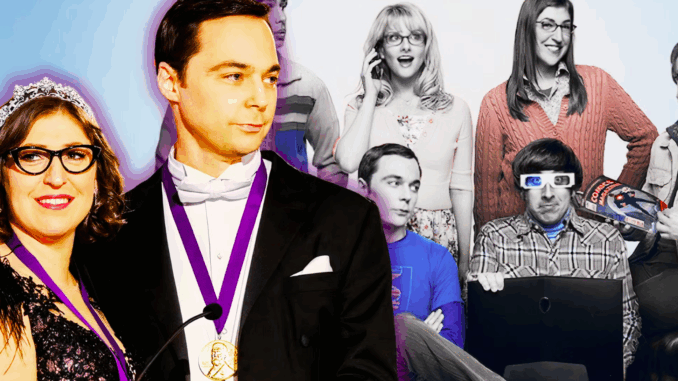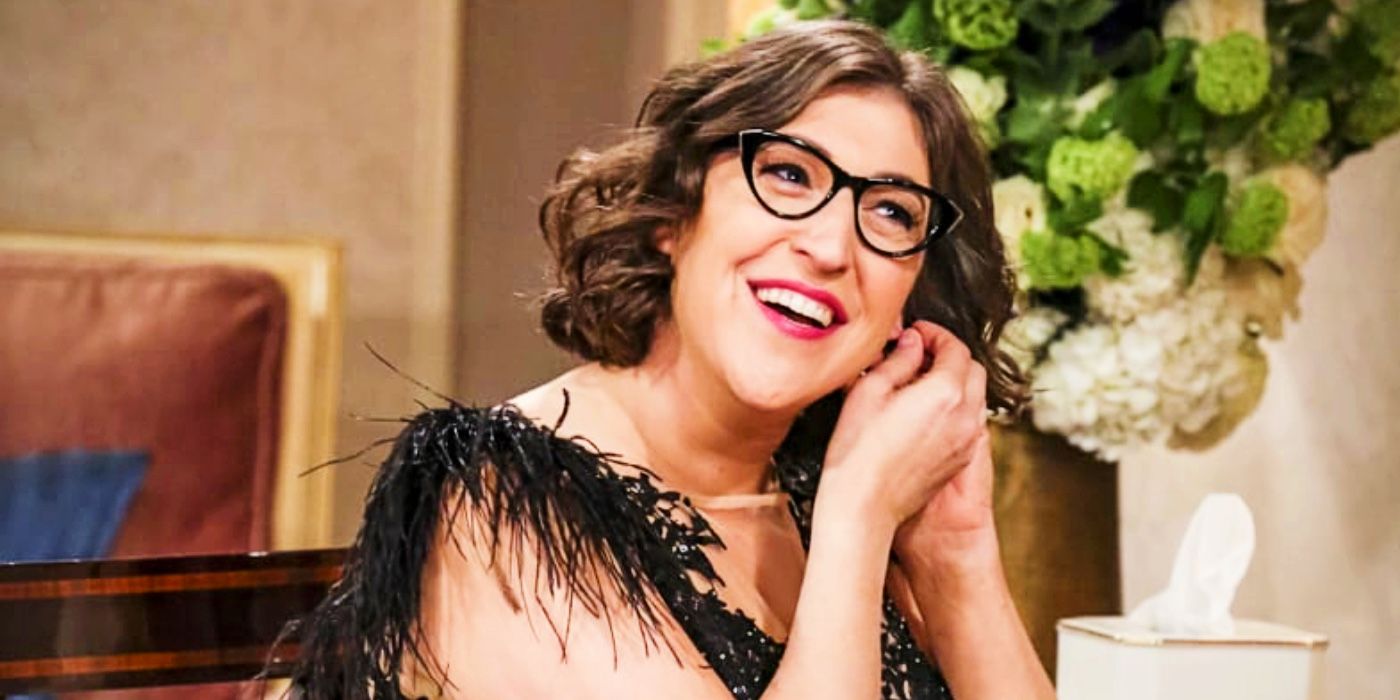
As The Big Bang Theory approached its final episodes, fans were preparing to say goodbye to characters they had spent over a decade with. Each character’s arc was reaching its culmination—Sheldon won the Nobel Prize, Leonard and Penny moved toward family life, and Howard and Bernadette embraced the chaos of parenthood. But for Amy Farrah Fowler, something unexpected happened that sparked both celebration and controversy: a makeover.
In the second-to-last episode, Amy wins the Nobel Prize in Physics alongside her husband, Sheldon Cooper. It’s one of the highest moments of her life—an affirmation of her years of hard work, her intellect, and her place in the scientific world. Yet, right after this monumental achievement, Amy stumbles upon unkind comments and unflattering photos of herself online.
What followed was a storyline that some saw as empowering and others found troubling: Amy gets a full makeover, including a new hairstyle, more stylish clothes, and an upgraded overall appearance—just in time for the Nobel Prize ceremony in Stockholm. The moment is framed as a triumphant shift for the character, but behind the scenes, the actress who portrayed her had a more nuanced view.
Mayim Bialik Wasn’t Against the Makeover—but She Had Reservations
Mayim Bialik, who had portrayed Amy since season 3, wasn’t fundamentally opposed to her character getting a makeover. In fact, she admitted that she liked the new look. What concerned her, however, was the message it might send—especially in the context of The Big Bang Theory’s themes of authenticity, identity, and self-acceptance.
“I didn’t think Amy was the kind of woman who would change her whole identity just because people online didn’t like how she looked,” Bialik explained in Jessica Radloff’s The Big Bang Theory book. Amy, after all, had always been proudly different. She wasn’t interested in trends, she didn’t chase beauty standards, and she’d even pushed back on attempts by Penny and Bernadette to “glam her up” in earlier seasons.
Bialik, a neuroscientist in real life, connected deeply with Amy’s character—an intelligent, socially awkward woman who learned to navigate friendship, romance, and professional ambition on her own terms. For most of the series, Amy had served as a rare example of a female sitcom character who didn’t conform to typical beauty norms—and wasn’t trying to. That, Bialik felt, was important.

The Scene With Raj—and Why Bialik Asked the Writers to Make It Kinder
In the episode, it’s Raj who encourages Amy to consider a new look. After she sees the cruel images online, she’s understandably upset. Raj, trying to comfort her, suggests that a makeover might help her feel better about herself.
But originally, the scene included jokes that Mayim Bialik found too harsh—especially given Amy’s vulnerable state in the moment. Bialik approached the writers and asked that some of the dialogue be softened. Her goal wasn’t to erase the humor but to make the moment feel kind, not cruel.
“She’s just been humiliated online, and she’s doubting herself,” Bialik later explained. “I didn’t want the scene to feel like we were making fun of her. I wanted it to be supportive.”
The writers listened. The final version of the scene kept the humor but added empathy. Raj is still flamboyant and fashion-forward, but his encouragement comes across as caring rather than critical. In the end, the makeover feels more like a gesture of friendship than a judgment on Amy’s appearance.
A Makeover with Complications
On-screen, the makeover is treated as a confidence boost. Amy enters the Nobel ceremony with a fresh look, exuding poise and grace. She stands beside Sheldon, not just as his wife or his colleague, but as an equal—celebrated for her brilliance and her individuality. The moment is iconic. And yet, it’s layered with emotional complexity.
Mayim Bialik later expressed that while she supported the idea of the makeover as a temporary change—something Amy might do for a big event like the Nobel ceremony—she was uneasy with the implication that Amy would permanently alter her identity because of outside criticism.
For twelve seasons, Amy had been unwaveringly herself. She wore bulky cardigans, sensible shoes, and layered skirts. She was more interested in science than style, and her idea of a romantic gesture often involved brain scans or fungus samples. Her friends loved her for who she was—and audiences did, too.
So when the show suggested that Amy needed to change to feel more confident, some viewers were left wondering: was that really growth, or was it compromise?
Staying True to Amy Until the End
In many ways, Mayim Bialik’s reaction to the makeover storyline reveals just how invested she was in Amy’s integrity. Unlike some actors who simply deliver lines, Bialik fought to protect her character’s values—even as the series neared its conclusion. She wanted to ensure that Amy’s evolution felt authentic, not forced. That meant allowing Amy to enjoy the fun of transformation, without sending the message that her original self was somehow lacking.
It’s a delicate balance—and one the show mostly handled with care. Amy doesn’t reject her past or abandon who she was. Instead, she steps into a new moment in her life with a fresh look, a deeper sense of self, and a husband who—despite his many quirks—loves her exactly as she is.
Why This Moment Still Matters
Years after The Big Bang Theory ended, the debate over Amy’s makeover still sparks conversation. Some see it as a celebratory shift—a woman embracing change on her own terms. Others worry that it undermined the very things that made Amy stand out.
But what can’t be denied is the thoughtfulness behind it. From Mayim Bialik’s careful input to the writers’ decision to edit the scene for empathy, the makeover became more than just a physical change. It became a reflection of something larger: the tension between self-acceptance and societal pressure, between growth and staying true to who you are.
In the end, Amy Farrah Fowler didn’t need a makeover to be extraordinary. She already was. But in that moment, as she stood on the Nobel stage with a new haircut and a steady smile, she showed us that being proud of who you are can sometimes mean trying something new—and doing it for yourself, not anyone else.